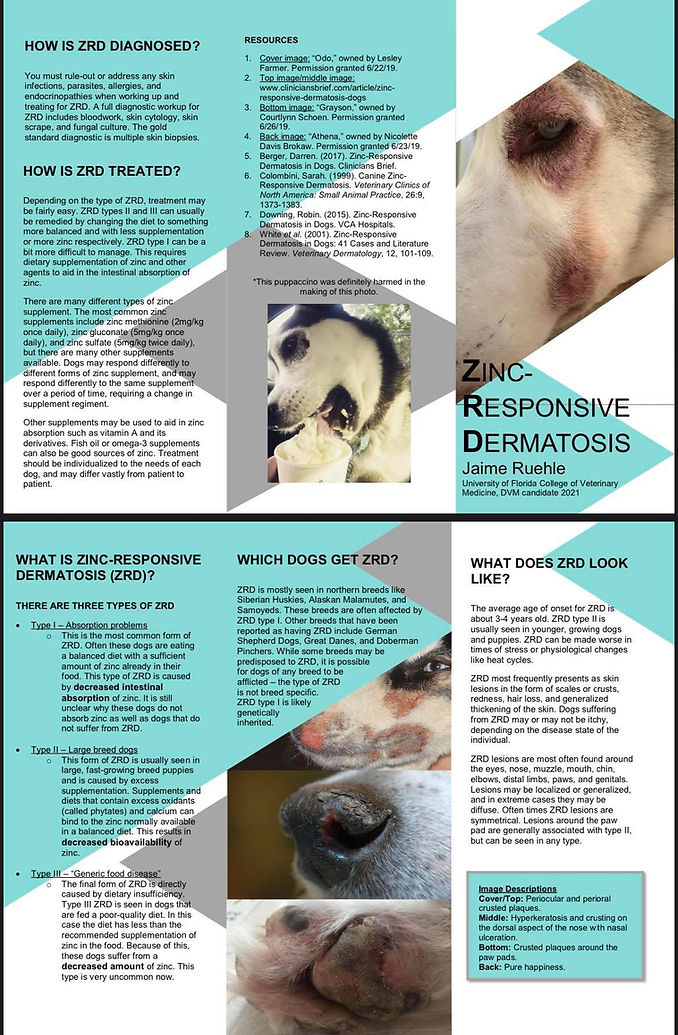
Husky Health

Dental Health
As with all dog breeds, taking care of your husky's teeth is vital to their health. Dental disease is one of the most common medical problems seen by veterinarians (some sources say over 80% of dogs over age 3 have dental disease). When left untreated, dental disease will grow worse over time, which can lead to gingivitis, infection, and even sepsis. The dog's teeth can rot and fall out or if bacteria gets into the blood stream, it can become a full body infection leading to hospitalization or even death.
What can you do to protect your dog? Your husky's teeth & gums should be checked annually by your veterinarian. If your vet recommends it, you can also do yearly dental cleanings at the vet where they will clean the teeth & remove plaque/tartar buildup.
You can also do weekly brushing at home with dog-safe toothpaste and a finger brush! As always, take your time introducing your husky to new things. Practice just petting around their mouth with the brush, then lifting their lips, etc. until they are comfortable.

Hip Dysplasia
Hip dysplasia is a skeletal condition in dogs where the hip joint does not fit together properly. When left untreated, dysplasia can lead to complete loss of function in the hips. This is a condition commonly seen in huskies, so you should know what to look out for!
Hip dysplasia can be indicated by limping, difficulty getting up from lying down, dragging feet, stiff hips when walking, or reluctance to run/play. Your vet will diagnose this condition by performing an exam and taking x-rays. It is very important to diagnose this condition as early as possible.
Early detection means you can start managing the symptoms. There are ways to slow down the effects of hip dysplasia - weight reduction, physical therapy, joint supplements, and medications. In some cases, the dog might need surgery.
The good news is, when caught and treated early, dogs with hip dysplasia usually lead long, full, happy lives!

Zinc Deficiency
Zinc deficiency is another common medical condition seen in huskies, malamutes and other northern breeds. There are several ways to treat or manage zinc deficiency (also known as ZRD: Zinc-Responsive Dermatosis).
Some cases can be treated with an over-the-counter zinc supplement. Others might require vitamins, food changes, allergy medication, or other forms of treatment.
There are 3 types of zinc deficiency but they all cause the same symptoms: rough, scaly skin; hair loss; scabs & sores. These issues generally present on the husky's face near the eyes, nose and mouth.
Type 1 - Absorption problems: most common form, these dogs are eating a balanced diet but body is not absorbing zinc properly.
Type 2 - Large breed dogs: often seen in large, fast-growing puppies; over-supplementing with large breed puppy food causes the body not to absorb zinc properly
Type 3 - Generic food disease: caused by dietary insufficiencies, can generally be treated with food change
If you notice rough, scaly or dry skin, or hair loss, consult your veterinarian for a treatment plan.
DISCLAIMER
The information and advice given here is not meant to replace the care or treatment of a veterinarian. This page exists for educational purposes only. We encourage you not to self-diagnose your dog's medical conditions and to please see a vet should any issues arise. Please email us at huskyhalfwayhouse@gmail.com if you have any questions!
.png)